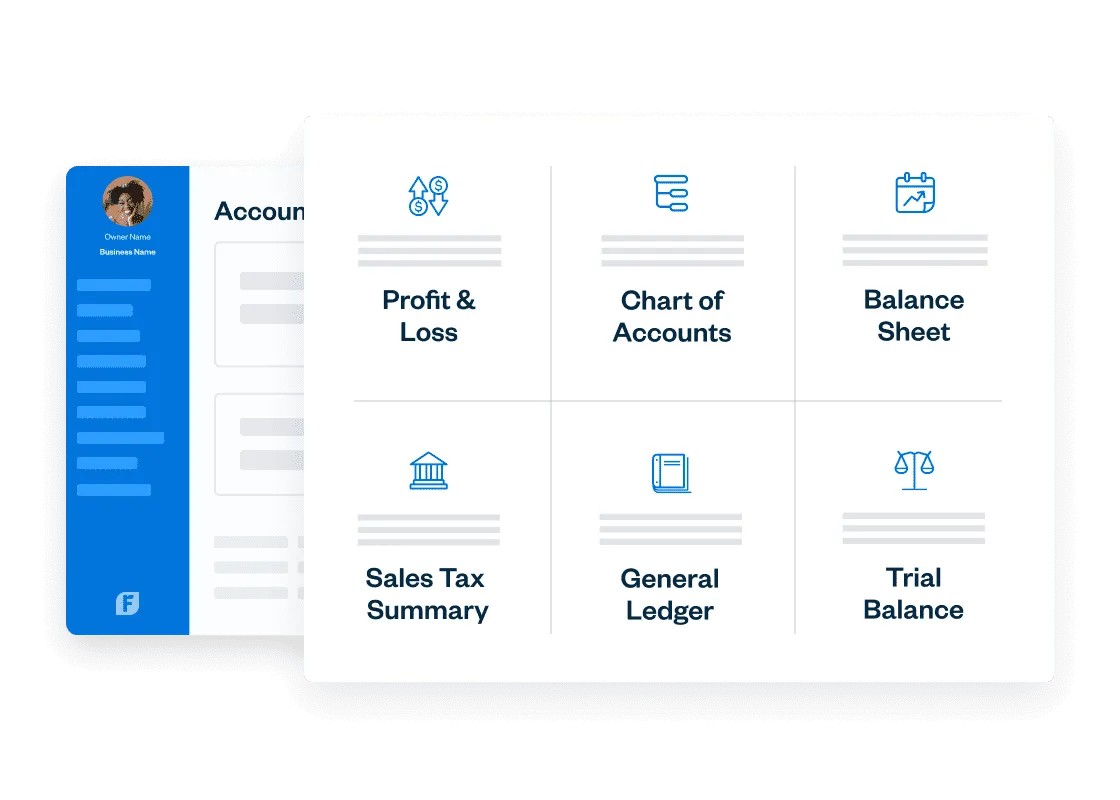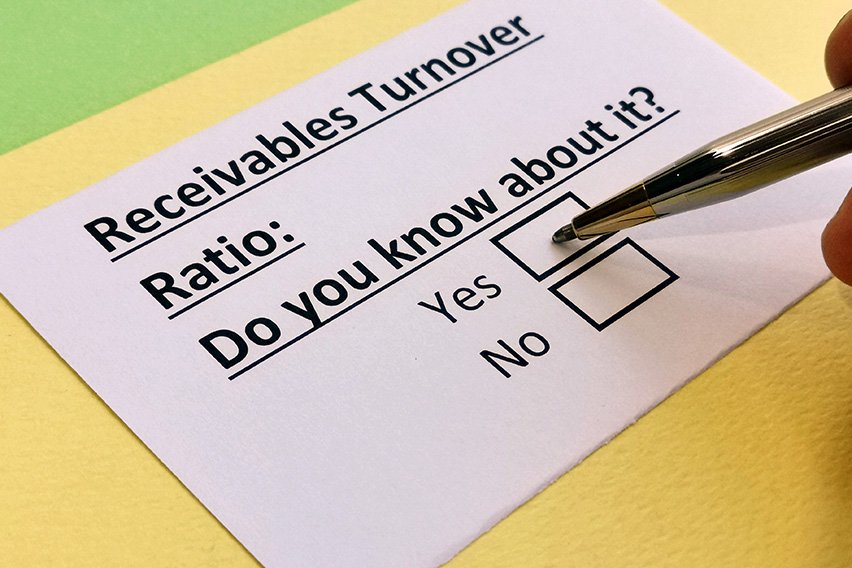How to Find Investors? 8 Best Ways for Startups and Businesses

For small business owners and startup entrepreneurs, few things are as vital as investments. Without proper capital in place, it can be extremely difficult to grow a business in the crucial early years. While we’d all love to be approached by a mysterious benefactor or get an investment on Shark Tank, in reality, you’ll need to pursue investments through many avenues to position your company for growth and success.
Entrepreneurs face a lot of uncertainty about finding funding and choosing their investors. In this guide, we’ll go over a roadmap of 8 key points for startups and businesses to consider as you search for the perfect investor for your business.
Key Takeaways
- Finding and persuading the right investors is a crucial part of launching or expanding your business.
- You can get funding for your business through several means, including crowdfunding, friends and family, venture capital, and private angel investors.
- Depending on how you secure funding, you may have to repay investment through dividends, loan repayment with interest, or share repurchase.
- You’ll need to create a solid pitch with a business plan, clear financial statements, and a strong proof of concept to secure meaningful investment.
Table of Contents
- Crowdfunding
- Friends and Family
- Angel Investors
- Venture Capital
- Business Incubator
- Network
- Private Investors
- Events
- How To Be Investor-Ready
- How To Select an Investor
- Conclusion
- Frequently Asked Questions
1. Crowdfunding
Crowdfunding is a new, increasingly popular way for entrepreneurs to raise money for their businesses, especially for start-up funding to kickstart the business. Crowdfunding works by getting people interested in a new product or service, and then asking for donations to help with startup costs.
On average, crowdfunding campaigns in the United States raise $28,656, with an overall average success rate of 22.4%. 1 Because crowdfunding relies heavily on marketing and public opinion, some can be extremely successful, especially for a novel business where people are excited to contribute.
It’s rare for crowdfunding to completely cover a business’s startup costs, but it can be a big help in securing some initial funding without having to get it through traditional means, such as small business loans. Because crowdfunding campaigns rely on relatively small contributions from a crowd, it’s recommended to set a modest goal that you’re likely to meet.
Types of crowdfunding include:

- Reward-Based Crowdfunding: Contributors provide a relatively small amount of money in exchange for a reward, such as a free product from the company in the future.
- Peer-to-Peer Lending (or Debt-Based Crowdfunding): A business that facilitates loans by matching businesses seeking investment with investors who receive interest on their loan rather than holding a stake in the company itself.
- Equity Crowdfunding: Investors take some ownership of the company (usually through shares), meaning they don’t get a return on investment, but will profit if the company is successful.
2. Friends and Family
It’s common for friends and family to be among the first sources of startup funding for new businesses. Rather than jumping through the many hoops of securing funds another way, such as small business loans, you can make a convincing pitch to your personal relationships and get the capital you need to launch your business.
This is the largest source of funding for early-stage ventures, with nearly 40% of American entrepreneurs pursuing investment from friends and family in the early fundraising stages. Collectively, these businesses receive more than $60 billion in friends and family investment per year, 2 showing how effective this approach can be.
Friends and family investment might be easier to secure than traditional investment but remember: these people are becoming your investors and will be facing risk, have a stake, and possibly hold sway over business decisions just like any other investor would. Make sure to pitch as you would to any other potential source of capital, and be wary of the risks of mixing your business and personal lives. A contract that spells out the expectations, authority, and details of the payback plan can be a great way to preserve your relationships when getting investment from friends and family.
3. Angel Investors
An angel investor is so-called because they can be the savior of your business! These people are often wealthy professionals who make their living by making prudent investment decisions on relatively young businesses. Angel investors are typically looking to catch a business with good growth potential in the earlier stages, ensuring they receive a good return on their (often substantial) investment.
If you’re able to secure funding from an angel investor, you probably won’t need much more investment to get your business off the ground. This has some advantages—you won’t have to split the equity among a large group of investors, making for a much simpler profit-sharing scheme. On the other hand, an investor with a large stake in your company may want to have an active role, meaning you might have to relinquish some control in exchange.
With a strong plan, an airtight business strategy, and some luck as you try to find angel investors, you can dramatically improve your startup’s odds of success. One study found that angel investors provided as much as $24 billion in funding each year, contributing to the launching, growth, and eventual success of more than 64,000 startups. 3 Here are a few places to search for an angel investor:
- Angel Capital Association: Lists angels by state
- Angel Investment Network: More than 300,000 potential investors in one place
- Pipeline Angels: Funding for businesses owned by women
4. Venture Capital
Venture capital is a form of business funding that comes from venture capital firms. These firms are invested in by limited partners who pool their wealth to invest in carefully selected businesses with good potential for substantial growth in a relatively short time. Venture capital investment is provided in exchange for equity in the business and a say in the business’s strategies and overall direction.
The goal of venture capital firms is to support your company’s growth until it can either go public or be purchased by a larger corporation, resulting in a payday for the business and the venture capitalists. This might not align with your business goals, however, so it’s wise to consider your vision for the business when weighing the benefits of venture capital.
Market volatility and high inflation have seen venture capitalist investment fall from previous years, but with uncommitted venture capital surpluses (also known as ‘dry powder,’ or money that hasn’t yet been spent) sitting around $300 billion, 4 there’s certainly money to be gained for promising businesses.
Venture capital firms tend to be most interested in established businesses looking to expand, but they sometimes invest in startups. If you’re willing to move quickly and face the risks of rapid expansion, a venture capital firm can be a powerful option.
5. Business Incubator
A business incubator is a type of program designed to provide access to resources, investment, mentorship, and other support to new and promising businesses. This is a more holistic type of investment than the other options listed here—business incubators provide a range of support, including:
- Office space
- Equipment
- Training
- Access to advisors
- Mentorship
- Small business administration assistance
- Introductions to potential investors
Business incubators are funded by a variety of sources, including universities, business colleges, nonprofits, for-profit property development ventures, and venture capitalists. Some business incubators offer their services at no charge to the right businesses, while others may charge a fee or take a percentage of profits from the companies they support.
Because of the funding, experience, and resources made available by business incubators, they can be extremely helpful for startups looking to get their company off the ground. A business incubator relationship can reduce the startup and operating costs of a new business by between 40% and 50%, 5 significantly improving the odds of initial success.
6. Network
Perhaps the oldest way of finding investment is simply through your professional network. The power of strategic relationships within your working network cannot be overstated—prospective investors are everywhere and it’s up to you to find them and win them over with your pitch.
Finding equity investment through your network is a surprisingly viable strategy for securing the capital you need.
As a professional, you must be constantly networking, forging new relationships, and maintaining existing ones. Building a relationship with the right person can open doors you may have never thought possible, and you never know who in your network could turn out to provide the investment your business needs.
If you’re looking at your network for investors, start with other businesses in your field—they may know of investors who are interested in what you offer. Another option is to get in touch with advisors or even past colleagues who work in a similar niche as you, tapping into their networks to try and find the right investor for your business.
You could also try reaching out to schools that offer degrees in your field, as they often host influential guests who might be interested in investing in your company. You can also consider joining a local business networking group, which can be a great way to connect with interested investors and other professionals in your niche.
7. Private Investors
Private investment simply means receiving funding from a wealthy individual in exchange for equity in the company. A private investor will usually be your sole funding source in the beginning. Angel investors are an example of a private investor, but you might also get investment from a friend, family member, a private equity firm, or a collective of venture capitalists.
Finding a private investor can be challenging. You can search for one at investment events, conferences, or anywhere else where people in your industry niche tend to congregate. Of course, a personal referral still tends to be the best way to turn an introduction into an investment, so relying on people you know personally and professionally is a good idea.
Private investment is a great way to secure the funds you need to launch your business without the need for a large group of equity holders, but there are some limitations. As with angel investors, other private investors will usually be the sole holders of a large portion of the company, and they will likely want influence over business strategy and major decisions to protect their business. You may have to give up some control of the company in exchange for substantial private investment.
Due to market fluctuations in recent years, early-stage funding from private investors has seen a downturn, but there’s still lots of capital being injected into promising new companies by savvy investors. Q4 of 2023 saw $23 billion in global early-stage funding alone. 6
8. Events
Meeting prospective investors face-to-face is one of the best ways to make a favorable impression and, hopefully, secure the capital you need. It’s recommended that you attend all the events you can, including investor summits, industry conferences, and pitch competitions. These are great places to meet wealthy individuals and venture capitalists actively looking for investment opportunities.
Of course, you need to ensure you’re prepared before attending one of these events. Your pitch needs to be highly refined and persuasive, and you need to know your numbers inside and out. Pitching to an investor is all about confidently presenting a solid plan that makes sense from their point of view. You should have lots of practice with the pitch, and you should also feel comfortable with meeting new people, socializing, and connecting with people on a more general level.
In one study, 85% of business executives surveyed agreed that face-to-face meetings create stronger, more meaningful business relationships, and 77% agreed that it was easier to read body language and facial expressions in person. 7 When it comes to significant investments of hundreds of thousands (or even millions) of dollars, these feelings can make a prospective investor trust you more, possibly making them more inclined to put their faith in your pitch and your organization.
How To Be Investor-Ready
When meeting with potential investors, you need to be ready to take advantage of the opportunity and put your best foot forward. Here are a few tips to get investor-ready.
Have a Business Plan
All investors are looking for a business with a solid plan. A strong business plan indicates that you’re a trustworthy investment, and are likely to generate value for anyone who backs you financially. Entrepreneurs should have an in-depth business plan if they hope to gain any significant investors.
Your business plan needs to include your business model, an outline of all business owners and their roles in the company, and your financial objectives for the future. It’s recommended to format your business plan into a pitch deck, which outlines the most important details of your business plan designed for pitching to prospective investors.
Demonstrate Your Idea
While your business plan shows that you’ve considered how your concept can be monetized into a successful business, you also need to prove your concept itself. If your business centers around a product, this might mean making the time and financial investment to create a prototype that demonstrates your idea, proving that it works in real life and not just on paper.
Providing proof of concept can be trickier for service or platform-based business ideas since they typically need to be fully operational to begin to generate real-world results. In this case, you want to provide detailed models to show why your idea would work, and perhaps have major players from the relevant industry backing your concept as useful and worthwhile.
Whatever the case, make sure you can persuasively show the value of your concept before attempting to pitch to investors. The process of doing this will also improve your idea, making a successful pitch that much more likely. This stage is a great time to seek smaller investments from friends and family, as you’ll need some capital to cover your costs during the research and development (R&D) phase.
Ensure Your Finances Are Well-Managed
Whether you’re seeking investment or not, keeping your financial information neat and organized is essential. Of course, an investment is a financial decision first and foremost, so you need to present clear, transparent, and favorable financial reporting to anyone you pitch to. Clean finances will provide a better picture of your company to investors, making it much easier for them to imagine getting involved.
One of the most important things to have on hand is a profit and loss statement, which is a good way for prospective funders to get a sense of your business’s profitability. Make your financials even more appealing to investors by working hard to get a steady, reliable cash flow going and make sure your operating costs are at the minimum amount needed to launch your business successfully. All of these factors combined will make your startup or business much more attractive to investors.

If you’re looking for an easy way to get your finances in order and ensure your accounts are ready for scrutiny by investors, FreshBooks accounting software could be the answer. Try FreshBooks for free and start organizing your business finances today.
Be Clear About What You’re Asking
Before asking anyone to invest in your company, you need to be 100% clear on what you’re asking for. What kind of role are you looking to fill at your company? Are you looking for stakeholders? Co-founders? Business partners? Advisors? Will your chosen investor be actively involved in the day-to-day goings-on of the company, or will it be a more hands-off position? Are you looking for mentorship and guidance, or just the funds to get the ball rolling? Are you also hoping to tap into the network of your investors to drive further growth, or are you just interested in a single investor and their capital?
Getting clear with yourself on this is a crucial step. It will make meeting with prospective investors much easier if you know exactly what you’re looking for, and it will help avoid wasted time as you go back and forth with investors who ultimately aren’t the right fit for your goals. Make sure to speak clearly, honestly, and openly to ensure your conversations are productive and actively helping you towards your objectives.
Be Prepared To Decline if Necessary
Not all prospective investors have your interests in mind. Most are simply looking to protect and grow their own money. Sometimes this goal will align with your own, but that’s not always the case. Don’t agree to the first person who wants to invest in your company before thinking carefully about that person’s conditions and expectations. Sometimes an investor will try to pressure you to take a bad deal or take advantage of your business’ vulnerable position.
Going forward with the wrong investor might mean you get your desired funding in the short term, but it can lead to huge problems in the future. From the hassle of separating your business from an ill-suited investor to paying excessive interest rates, you need to consider the many potential downsides of agreeing to an investment from the wrong person and be prepared to say ‘no’ when needed.
How To Select an Investor
When choosing an investor, make sure you look at their track record with previous investments, checking how other companies they’ve backed have performed. You should also consider how involved they want to be in the company, determining whether or not their wishes align with your goals.
Lastly, what value beyond funding (such as their networks or expertise) can they provide? Investing is a two-way street and a relationship that can last years, so evaluating how that relationship will play out is a worthy investment of your time, too.

Conclusion
Understanding how to find investors is essential for anyone in business. This is particularly true for entrepreneurs and startups, who rely on funding from wealthier capital partners to help them put their business plan into action and begin growing their business into a profitable venture for all parties involved. With the right approach, a great pitch, and the tenacity to keep searching, you can find the capital you need to make your vision a reality.
FAQs About How To Find Investors
Still curious about finding investors for your business concept or startup? Here are a few answers to frequently asked questions.
How much does it cost to find investors?
Costs to meet prospective investors are low. Expenses generally come from fees for industry events and pitch competitions, as well as the costs to generate a proof of concept (and to not be making a profit in that time). Beyond this, you shouldn’t be spending much of your own money to pitch to investors.
How do investors get paid back?
Investors are usually paid back through quarterly dividends, which are payments made out of your company’s profits. Alternatively, some companies may pay investors by buying back their shares in the company (share repurchase) or through debt refinancing.
How do you ask an investor for money?
You need a strong pitch to ask an investor for money. This means an airtight business plan, organized financial statements, demonstration of your concept, and outlining a clear need for your business. You need to demonstrate growth potential and good faith to pitch successfully.
How much money do you ask for investors?
Generally, you should ask for 20 to 30% of your company’s valuation as an investment, provided you’re offering 20 to 30% of your company in exchange. In certain scenarios, you may ask for more or less money in exchange for more or less of the company, but this depends on the company and investor.
Do you pay back angel investors?
You don’t pay back angel investors in the traditional sense, since angel investment is not a loan. Instead, the investor gets a stake in your company in exchange for investment, so they get a return on their investment via dividends, which are taken from the company’s profits.
Article Sources:
- CrowdFund.news. “30+ Valuable Crowdfunding Statistics: Facts and Trends for 2023” Accessed June 21, 2024.
- Hello Alice. “Democratizing the Friends & Family Round” Accessed June 21, 2024.
- Forbes. “In-Depth Angel Investor Survey Sheds Light On Angel Success” Accessed June 21, 2024.
- PYMNTS. “Tech Investors Stockpile Record $311 Billion in ‘Dry Powder’” Accessed June 21, 2024.
- Ondexa. “20+ Eye-Opening Business Incubator Statistics You Need To Know” Accessed June 21, 2024.
- Crunchbase News. “Global Startup Funding In 2023 Clocks In At Lowest Level In 5 Years” Accessed June 21, 2024.
- Forbes. “Business Meetings The Case for Face-to-Face” Accessed June 21, 2024.
About the author
Michelle Payne has 15 years of experience as a Certified Public Accountant with a strong background in audit, tax, and consulting services. Michelle earned a Bachelor’s of Science and Accounting from Minnesota State University and has provided accounting support across a variety of industries, including retail, manufacturing, higher education, and professional services. She has more than five years of experience working with non-profit organizations in a finance capacity. Keep up with Michelle’s CPA career — and ultramarathoning endeavors — on LinkedIn.
RELATED ARTICLES


 What Is an Income Statement?
What Is an Income Statement? How to Calculate Accounts Receivable Turnover
How to Calculate Accounts Receivable Turnover What Are Fixed Assets? A Simple Primer for Small Businesses
What Are Fixed Assets? A Simple Primer for Small Businesses Operating Margin Equation: How to Calculate
Operating Margin Equation: How to Calculate Is Service Revenue an Asset? Breaking down the Income Statement
Is Service Revenue an Asset? Breaking down the Income Statement Chart Of Accounts: Definition, Types And How it Works
Chart Of Accounts: Definition, Types And How it Works